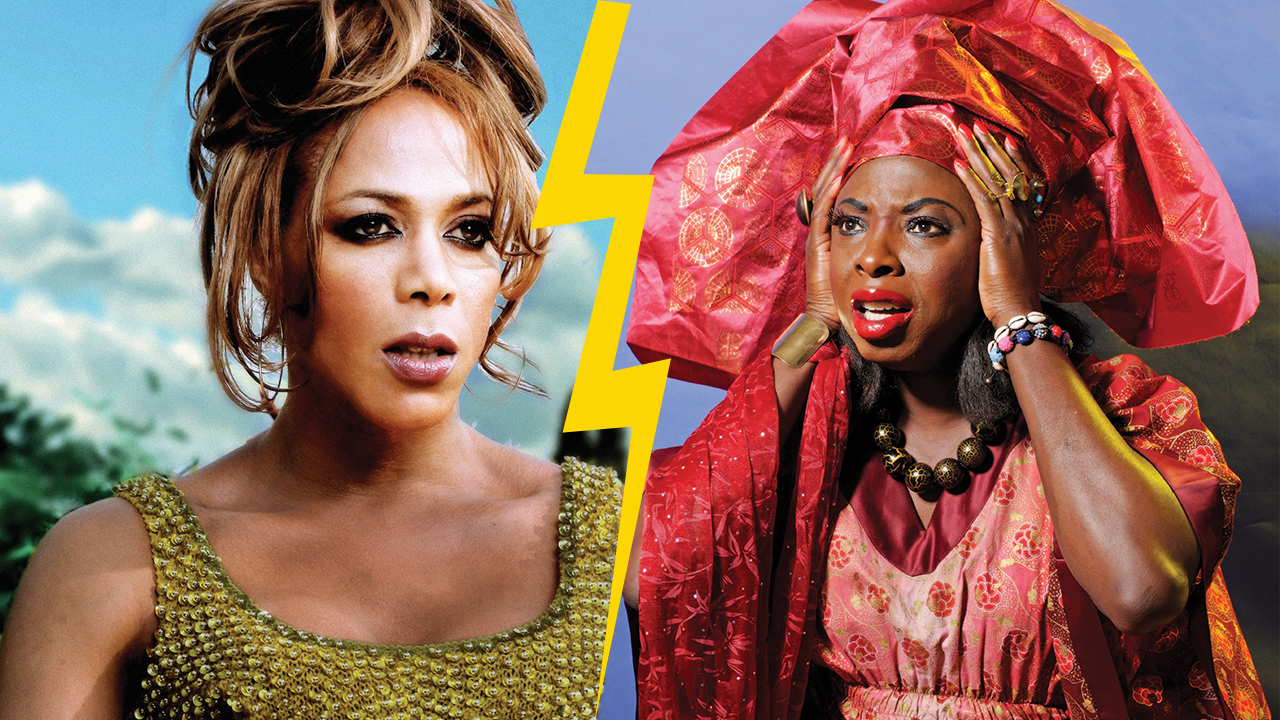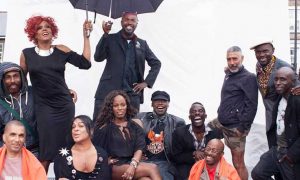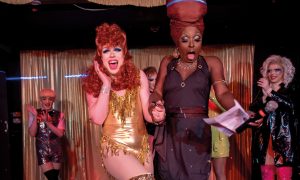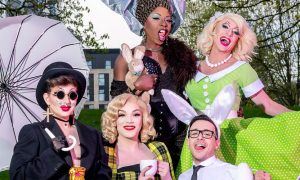Black History Month: When Tutu met Kimberley

With Black History Month upon us, scene legends Son of a Tutu and Mzz Kimberley met up for a chat about race and diversity on the UK LGBTQI scene.
Tutu: Ah Mzz Kimberley, you are looking fabulous for someone over 100 – you give the saying ‘black don’t crack’ new meaning…
Kim: Oh shut your face, grandma. You’re older than me!
Stop lying, but as you’ve been around since before the pyramids sprung out of the desert, pray tell, what does Black History Month (BHM) mean to you?
It’s a celebration of ‘People of Colour’ (PoC) and their achievements over time as well as taking stock of where we are and need to go. It’s very easy for our endeavours and achievements to get overlooked or even whitewashed out of the telling of the larger LGBTQI history – for example, Marsha P Johnson’s omission from the recent Stonewall film. BHM is a curator of our efforts and achievements.
So who are the PoC who have made notable contributions to the LGBTQI scene?
Well you can go all the way back to Josephine Baker, who was bisexual, Bessie Smith, Big Mama Thornton, author James Baldwin, civil right campaigner Bayard Rustin and many more.
What about the UK cabaret and club scene – how have things changed since you first moved here from America in the early 90s?
When I first came on the scene the only black girl around was Ebony, who is one of the sweetest people you could ever meet. Including yourself, who is not so sweet [laughs].
Haha! So what was it like back then?
A lot of PoC back in the day felt they did not have a voice and I’d like to think because of my position at Heaven that some saw me and thought ‘I can do that as well’.
Do you think the fact that black and brown society back then was too traditional for PoC to visibly be themselves?
Absolutely. Back in the day the black community was very homophobic (and still is to some extent). I remember being called a batty man for the very first time, and being an American I had no idea what it meant.
Did you encounter racism?
I strangely found myself in a relative position of privilege being American, which in turn caused a lot of resentment from some black British girls. In addition, my position as the face of Heaven for seven years also caused problems with a few Caucasians who were not used to taking direction or dealing with a black trans woman in a position of power; it made it all very interesting. Nevertheless I stood up for myself, which was a very lonely place back then.
Lonely?
Yes. The PoC who worked on the scene suffered casual and not-so-casual racist indignities in silence, for fear
that kicking up a fuss would get them fired. I once had the owner of a well-known Vauxhall nightclub arrested for using a racist slur but the case was dropped because the witnesses were too scared to speak against him.
So yes, standing up to racism in those days was a very lonely affair.
Is it still lonely nowadays?
Not at all; the younger generation have a voice that they are not scared to use and it is ruffling feathers in some quarters. Not only that, but they are now increasingly able to determine their own destiny, and you find them in positions of economic control and not pure dependency; they are opening their own clubs and/or promoting their own nights.
Personally, I think the growth of the black middle class has resulted in the black voice becoming more assured.
Definitely and also because they see what’s going on in America; they see what happens when you come together and how you can move mountains, which I have been saying for years.
Talking about America, what do you think about the latest American import into Britain: “Black Lives Matter” (BLM)?
I think it’s very important and yes, it’s part of the coming-of-age of the black community.
In America they have done an incredible job at making police brutality a major political priority, but I think they are still finding their way in Britain and I hope they move beyond campaigns like “Climate Crisis is a Racist Crisis”, which seems a little tenuous.
Well it is important because the majority of people residing near London City Airport are non-white and poor. Rich people fly into that airport that don’t have to deal with the pollution of that area, so in a way it’s ethnic cleansing.
But for an act to be racist it has to be deliberately targeted at someone or a collection of people of a certain race; I can’t see this deliberate intent here, despite the arguable merits of anti-airport expansion…
As the majority of areas of people affected are low income members of our society with a predominance of people from ethnic minorities, the lack of trust built up over generations has resulted in it being regarded as another manifestation of structural racism.
Climate change affects us all, rich and poor alike. I do agree however that there are still vestiges of structural racism in the UK and the continued rise of the far right across the West means BLM will be an invaluable asset in tackling the inevitable storm to come.
Indeed: we all need to get to know each other better, listen to each other and have mutual respect, and avoid sweeping generalisations.
So, you gonna take me to go see Dreamgirls?
Maybe, as it premiered 35 years ago, way before I was born…
Haha, you mean before your first facelift…













